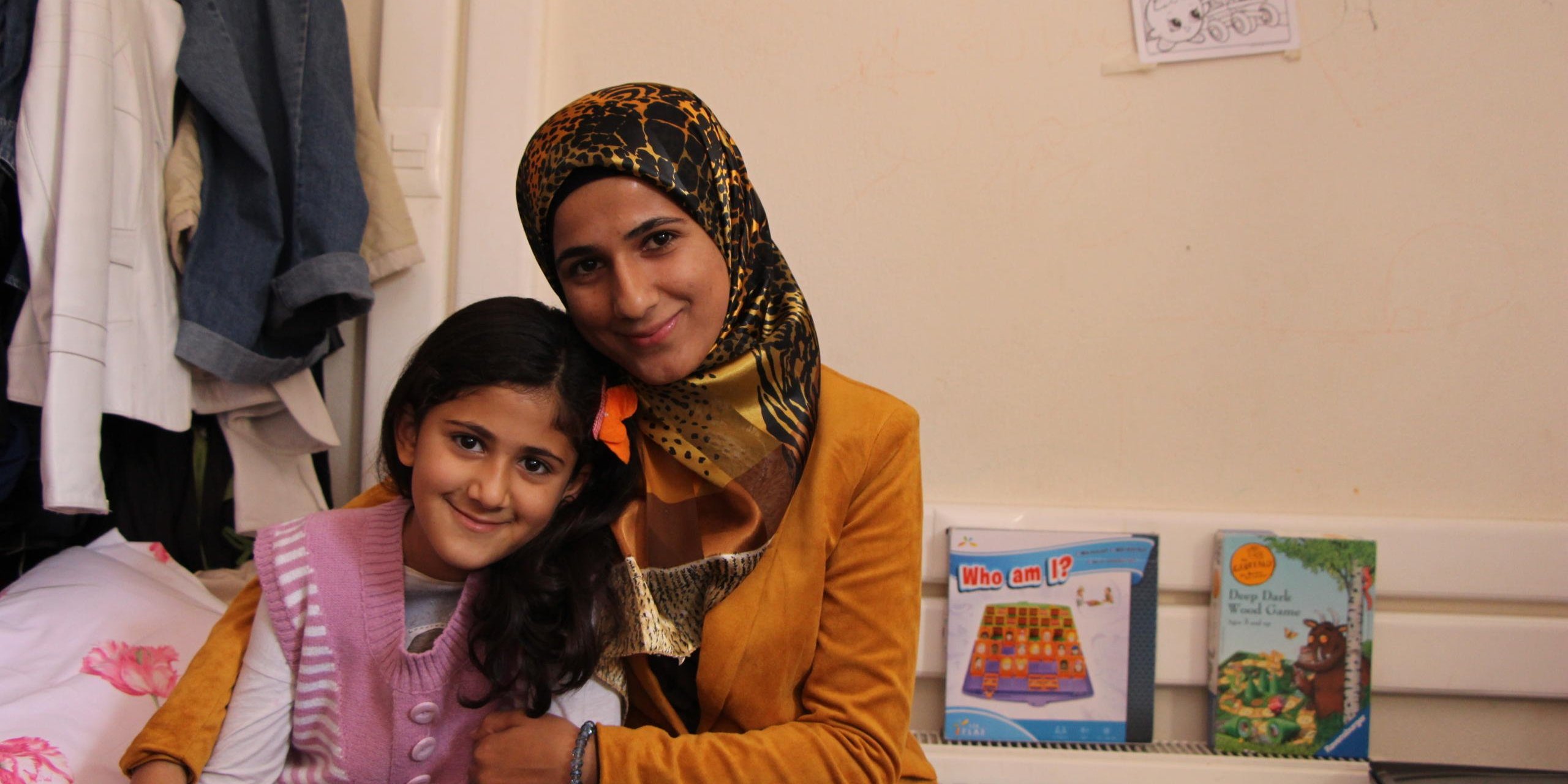
At 18 years old, Douaa Sakhnini got married. At 19, she enrolled in university. At 20, she had her first child and dropped out to become a full-time mother. She watched with envy as her friends graduated and got jobs.
Then, like so many others, she watched with growing apprehension as the Syrian war spiralled. Her five-year-old niece and two uncles were killed. She began teaching her daughters at home because going to school was too dangerous. The source of her husband’s livelihood, a taxi, was destroyed by debris from a collapsing building. Then they lost their home.
At 27, she and her family fled Syria for Turkey and, after repeated attempts, made it to Greece.
Veria, in northern Greece, is a relatively new home for Syrians. A former military base, since March 2016 it’s been a hospitality centre for asylum seekers. Forty per cent of the some 223 are children under the age of 14. Managed by the Greek Army with support from NRC and funding from the European Civil Protection and Humanitarian Aid Operations (ECHO), the Veria site mainly hosts families and vulnerable individuals.
Role reversal
Nestled amid the trees, dogs sun themselves in the sun. Toddlers wander around with bags of chips. A young boy rides a bike up the woody lanes overlooking the lake. Women tumble out of a yellow Greek taxi, carrying Ikea bags of groceries bought from the street market in a nearby town.
“Anywhere is better than my country,” Sakhnini says when asked where the family thought they would go when they left Syria. The only thing she wanted, she says, was “something safer, somewhere where there is work”.
In Veria, Sakhnini’s experience teaching her daughters helped her find work with the Norwegian Refugee Council (NRC). The job makes Sakhnini the sole breadwinner for her family, teaching Arabic, maths, science and art to as many as 18 children between the ages of six and nine. Her husband, she says, is happy someone is working.
But so is she with her first-ever job. Teaching the children who “jump around like popcorn in the classroom” has rekindled her own goals and dreams. She would like to finish university.
A repurposed classroom
At the entrance of the site, a sign with symbols of children playing warns in Arabic and English: drive slowly.
NRC supports the Greek ministry of education representative based in the camp to get children enrolled in public schools.
“Providing education helps children not only to become part of the community they are living in, the Greek community, but to have a normal life again,” says Gianmaria Pinto, NRC’s country director in Greece. “Children can be children again.”
In addition to classes in their mother tongues, NRC teachers provide homework support and Greek and English language classes. Youth and adults, about 24 per cent of the camp’s population, can also take English and Greek.

Building a new home
Among the students are Sakhnini’s daughters: nine-year-old Tharwat, who managed to experience school in Syria for a short while, and seven-year-old Sara, who never managed to step inside one.
In Veria, they live in a room with two beds, crowded with toys and games and drawings. Tharwat and Sara are playing in the communal living spaces with the other children in the camp, and come shyly into the room to sit with their mother.
Tharwat wants to be a doctor, a dream that Sakhnini didn’t have a chance to pursue. She’s hopeful for her and her younger sister.
“They can be what they want to be because now, they are free,” she says.


